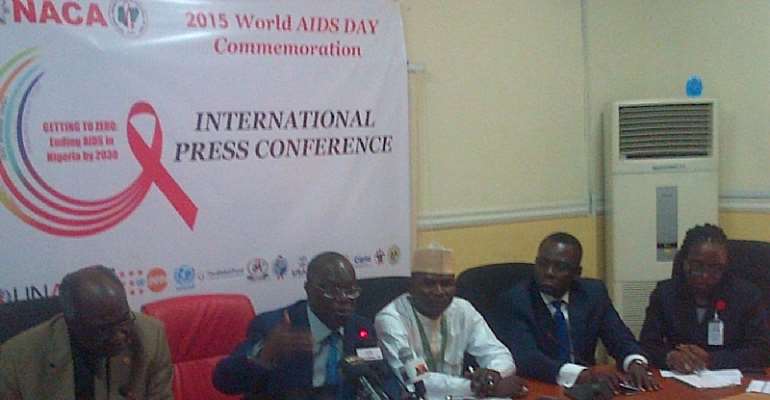New cases of AIDS infection in Nigeria has reduced by 35% – NACA boss

Prof. John Idoko, the Director-General of the National Agency for the Control of AIDS, on Tuesday said cases of new AIDS infection reduced by 35 per cent in the past four years in Nigeria.
Idoko said this while briefing the media in preparation for the 2015 World AIDS Day scheduled for December 1.
It is with the theme: “Getting to zero: Ending AIDS by 2030.”
Idoko said: “Nigeria’s AIDS response has gained steady momentum in the past four years. “We have managed to turn the tide. “We now need new commitment and support and we are hereby calling on Nigerians and the country’s partners to renew their commitment to ending AIDS by 2030.”
The NACA boss, however, said for AIDS to end by 2030, the country needed to fund the 90:90:90 strategies in order to eliminate the progression of AIDS, premature death and HIV transmission.
He said the 90-90-90 targets referred to the pathway by which a person was tested, linked and retained in HIV care and the way the Anti Retroviral Drug was initiated and adhered to.
"World AIDS Day was to create awareness about HIV/AIDS, to reduce stigma and discrimination against people living with or affected by HIV and also advocate for more private sector partnership" Idoko added.
At the event, Dr. Bilali Camara, the Country Director of UNAIDS, said ending AIDS by 2030 was attainable in the country in the same spirit Nigerians fought Ebola.
Camara explained: “At the end of 2015, I can say with clarity that Nigeria is among the countries which have halted the spread and reversed the trend of the HIV epidemic.
“There is no doubt that with the fast tracking approach being promoted, Nigeria will end AIDS by 2030.”
In his opinion, Abdulkadir Ibrahim, the National Secretary of Network of People Living with HIV/AIDS in Nigeria, said HIV testing was the first and most important step toward ending AIDS.
Ibrahim said the rate of HIV testing was, however, very low and unless the testing bottleneck was addressed, the potential of so many promising strategies would not be realised.
He noted that “placing less than 800,000 people living with HIV on ARV, where less than 50 per cent of those who needed to be placed on Anti Retroviral Therapy are not having access is totally unacceptable.”
He then appealed to government at all levels to increase the funding and budgetary provision for HIV/AIDS, Tuberculosis and Malaria, which he said were highly responsible for high maternal and child death.
Ibrahim said: “Government needs to own up the interventions, put money on treatment, prevention, care and support to ensure access to HIV/AIDS, TB and malaria services.”
The News Agency of Nigeria reports that the World AIDS Day, commemorated every December 1, is to galvanise efforts in the fight against HIV/AIDS, show support to people living with the virus and remember those who died of AIDS.
